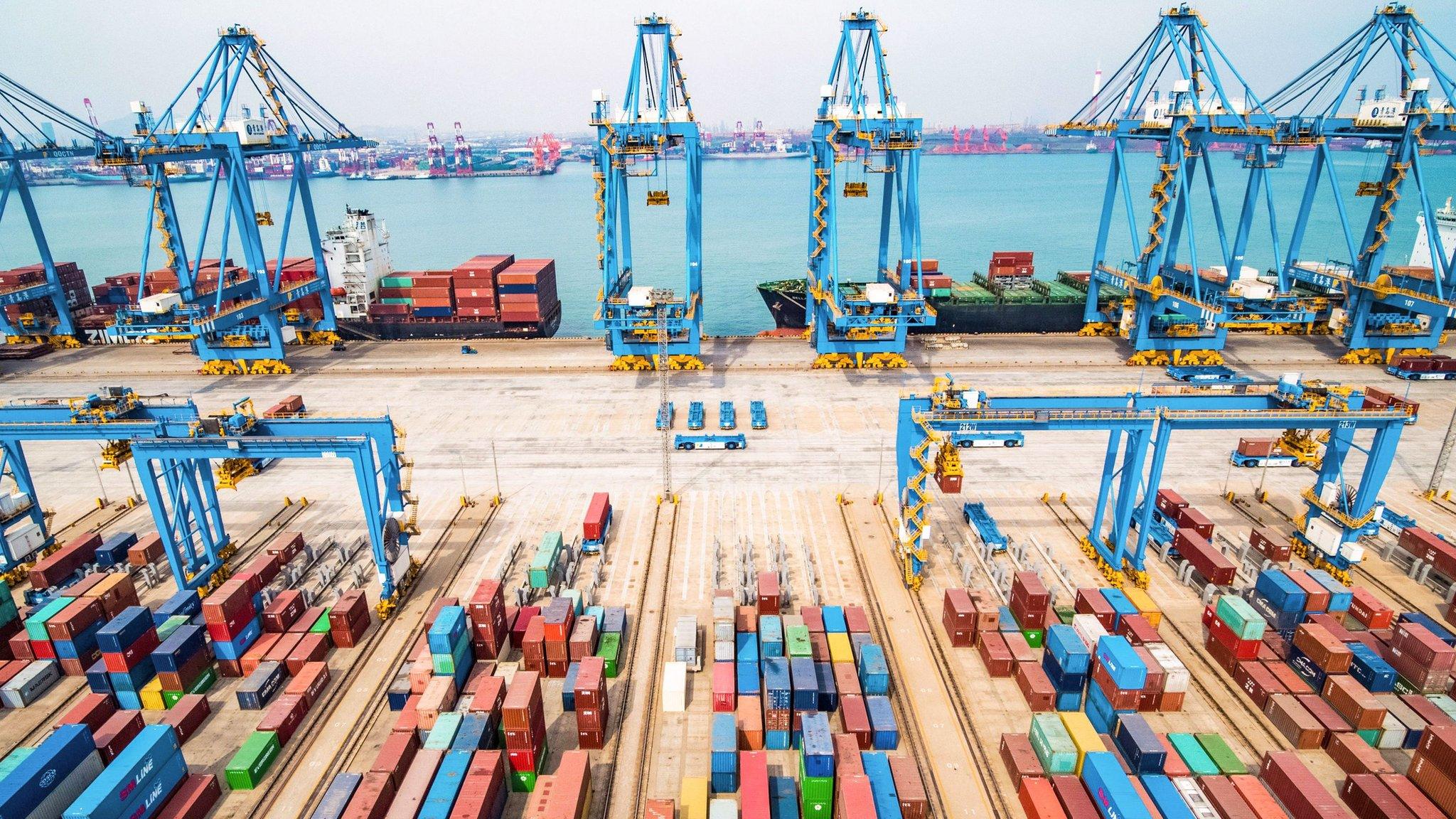Markets calm amid hopes for US-China talks
- Published
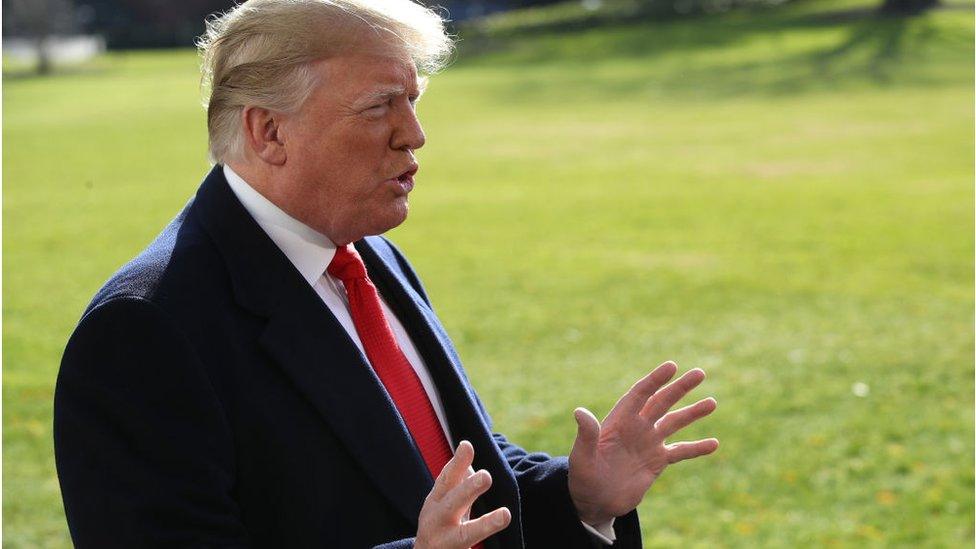
Global stock markets have steadied amid hopes that the US and China will resume talks next month, following an escalation in their trade war.
On Monday, China said it would hike tariffs on $60bn (£46bn) of US exports, causing stock markets to tumble.
But later US President Donald Trump said he expected to meet China's president at the G20 summit in Japan.
He also said he had not decided whether to go ahead with threatened tariffs on another $325bn of Chinese imports.
At a briefing on Tuesday, China's foreign ministry spokesman Geng Shuang said: "The two heads of state maintain contact through various means."
But when asked whether China was making preparations for a possible Xi-Trump meeting, Mr Geng said: "I have no information at present about the specific question raised."
Asia markets rose in early trading on Wednesday, with the Shanghai Composite adding 0.9%.
The gains in Asia followed a modest rise on Wall Street. The Dow Jones Industrial average closed 0.8% higher after falling more than 2% the previous day when China announced its retaliatory measures.
The S&P 500 climbed 0.8% and the Nasdaq ended 1.1% ahead.
European indexes also recovered with London's FTSE 100 up 0.8%, Germany's Dax 0.4% higher, and the French Cac 40 up 0.9%.
On Friday, Washington doubled duties on $200bn of Chinese goods, having accused Beijing of trying to renegotiate a trade deal.


The war of words between the countries had intensified after the latest round of US-Chinese trade negotiations ended in Washington last week without a deal,
Mr Trump warned China not to raise levies and urged US firms to buy goods from other countries such as Vietnam.
But Mr Geng told a news briefing in Beijing that China would "never surrender to external pressure".
From 1 June, China will impose duties on US goods including beef, lamb and pork products, as well as various varieties of vegetables, fruit juice, cooking oil, tea and coffee.
'Good relationship'
As well as ordering a tariff increase on $200bn worth of Chinese imports, Mr Trump had directed the US trade department "to begin the process of raising tariffs on essentially all remaining imports from China".
The US released a list of those additional Chinese products that could face higher levies, external.
But after China's response, he said he had "not made a decision" on whether to go ahead with those additional levies.
He also said the US had "a very good relationship" with China, and the two sides would talk at G20 summit on 28-29 June.
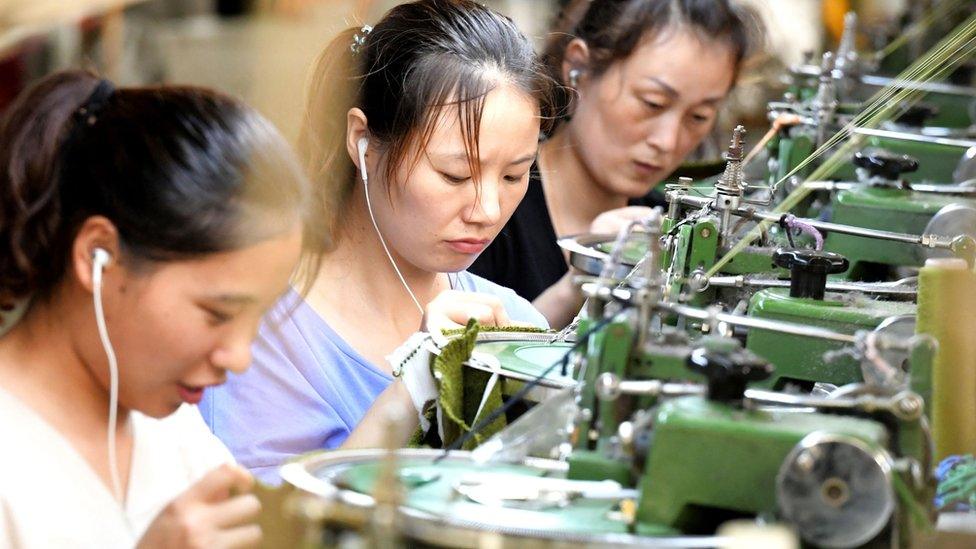
"Maybe something will happen," he said. "We're going to be meeting, as you know, at the G20 in Japan and that'll be, I think, probably a very fruitful meeting."
The US argues that China's trade surplus with the US is the result of unfair practices, including state support for domestic companies.
It also accuses China of stealing intellectual property from US firms.
But Mr Trump's approach in the dispute has put him at odds with his own top economic adviser, Larry Kudlow, who has said "both sides will suffer".
On Tuesday, the president remained defiant, tweeting: "In one year Tariffs have rebuilt our Steel Industry - it is booming! We placed a 25% Tariff on 'dumped' steel from China & other countries, and we now have a big and growing industry."
Allow X content?
This article contains content provided by X. We ask for your permission before anything is loaded, as they may be using cookies and other technologies. You may want to read X’s cookie policy, external and privacy policy, external before accepting. To view this content choose ‘accept and continue’.
- Published14 May 2019
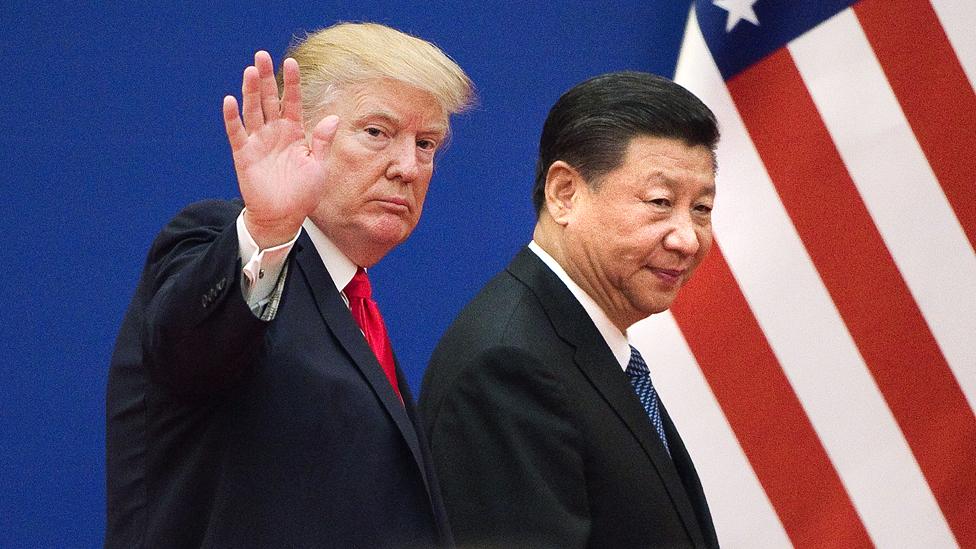
- Published16 January 2020
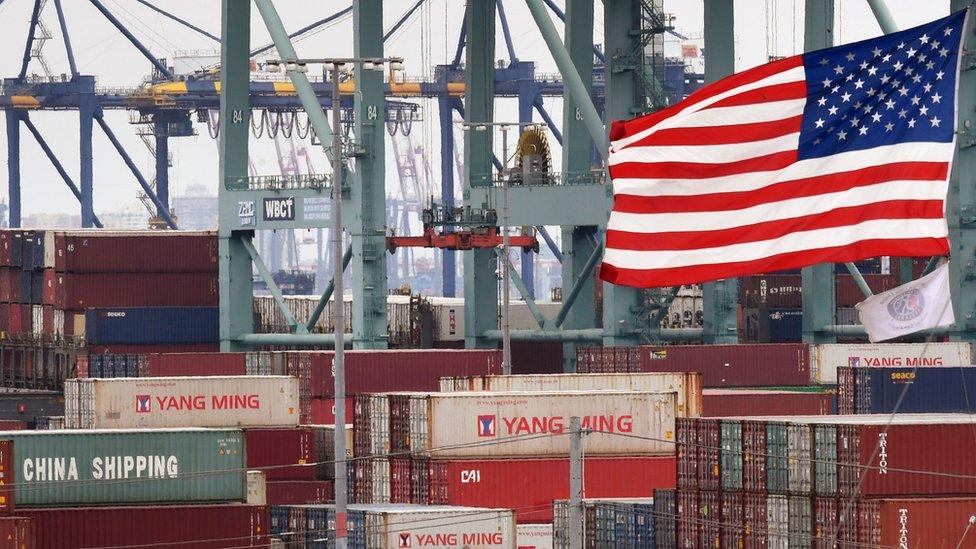
- Published10 May 2019
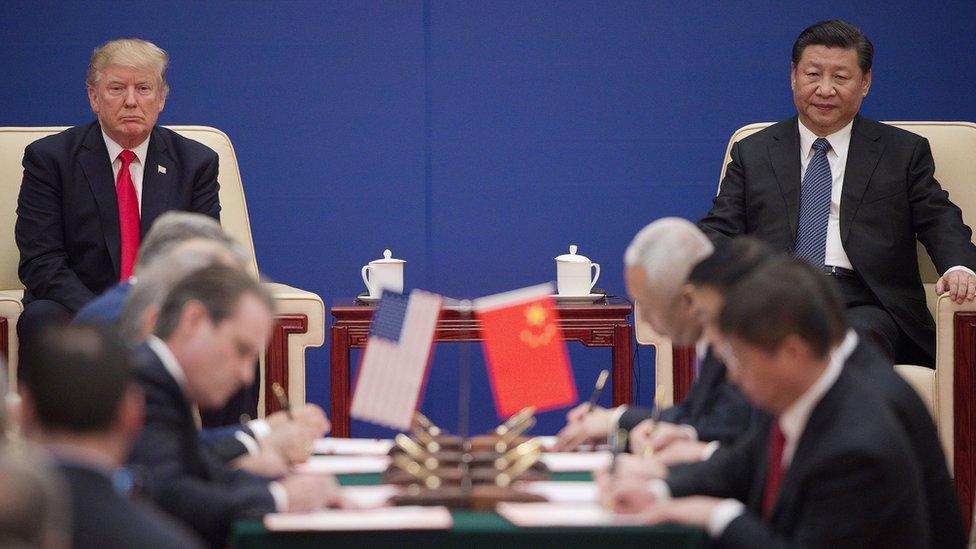
- Published10 May 2019
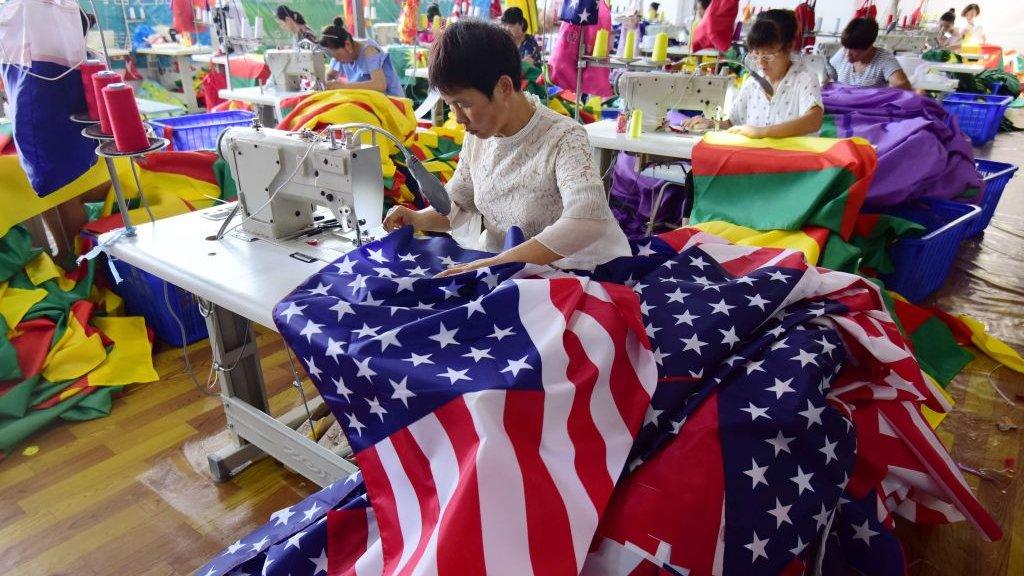
- Published10 May 2019
